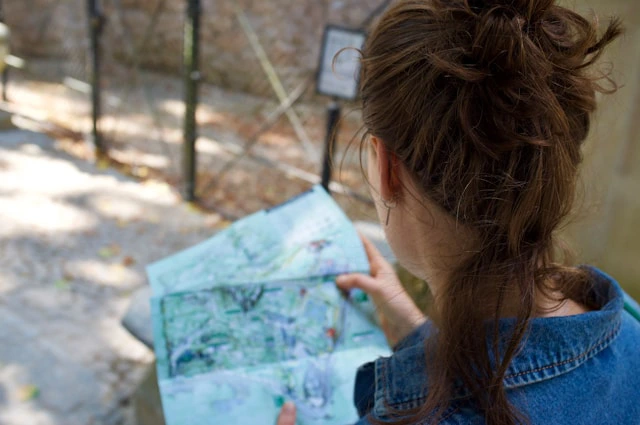In the last couple months, we’ve been tirelessly working with our international Dual Tourism partners, Province of Salerno and Cosvitec from Italy, Institute of Entrepreneurship Development – iED from Greece, Alcaldía distrital de Cartagena de Indias from Colombia, Ecommerce Institute and Municipalidad de Armstrong from Argentina to create the Dual Tourism final report titled “Challenges and Opportunities in a Changing world: What’s Next in Tourism?”. This report analyzes the tourism industry and gets into the specifics of the educational system and the employability of each partner country. Finally, it also highlights emerging trends in tourism, what the sector lacks, and the skills needed for the future. This blog will briefly analyze each section of the report to grasp what it entails.
Our Findings in the Dual Tourism Final Report
The tourism industry in each partner country
Italy
The tourism sector in Italy faced significant challenges due to the COVID-19 pandemic but has shown promising signs of recovery, highlighting its importance to the economy. Despite declining domestic tourism, foreign tourist stays rebounded in 2022, albeit remaining below pre-pandemic levels. Italy ranks fourth in EU stays, contributing significantly to the region’s tourism. Additionally, Italy boasts the most UNESCO World Heritage sites globally, emphasizing the importance of cultural tourism. Food and wine tourism have also flourished, driven by initiatives celebrating culinary experiences and sustainable agriculture. Italian cuisine’s global leadership is supported by its diverse specialties and organic farming practices. The preservation of culinary heritage through agritourism ensures its continuation across generations.
Greece
Greek tourism in 2023 is projected to contribute significantly to the nation’s economy, with an estimated 34 million international tourist arrivals and €21 billion in direct foreign exchange earnings. The sector, constituting 25% of GDP, focuses on enhancing quality and sustainability, as outlined in the Greek Tourism I Action Plans 2030. Efforts include initiatives for green financing, conferences, and stakeholder discussions. The emphasis is on translating sustainability efforts into action, ranging from education to environmental concerns like waste management and climate change. Both large corporations and small-scale ventures are embracing sustainability principles, responding to tourist and community expectations, and securing financing.
Argentina
Argentina’s tourism sector leads employment growth, with a 12.7% increase in registered workers in June 2023, making it the fastest-growing industry. “Hotels and restaurants” also saw a 6.4% rise in economic activity in the second quarter, with 24 consecutive months of job creation. Argentina has welcomed five million foreign tourists, surpassing pre-pandemic levels, with an estimated economic impact of $3.6 billion. UNWTO highlights the potential for green investments in Argentina’s cultural and natural attractions, particularly inclusive tourism. The country experiences sustained tourism growth, exceeding pre-pandemic figures for five consecutive months.
Colombia
Cartagena’s economy heavily relies on tourism, driven by its colonial architecture and cultural events. Despite its diversification into sectors like naval and industrial, challenges persist, including economic vulnerability and unemployment, particularly among the youth. The city seeks to attract more foreign tourists while balancing economic growth with cultural preservation. However, economic disparity remains, with marginalized areas facing poverty and limited access to essential services. Efforts to address poverty include education programs, yet disparities in educational opportunities persist, highlighting the need for investment in marginalized communities to break the cycle of poverty. Despite challenges, governmental and non-governmental efforts aim to improve living conditions and reduce poverty rates in Cartagena.
Educational systems and employability

Italy: The tourism sector in Italy accounts for nearly 1 million jobs, with youth representing 63% of the employed. However, a widening talent gap between required skills and available resources impacts the sector’s competitiveness. Investment in institutional and business training is crucial to address this gap. While Italy offers various educational programs in tourism, there’s a need to align training with industry needs and emphasize specialization to meet evolving demands.
Greece: Since 2016, Greece has initiated a comprehensive reform of its Vocational Education and Training (VET) system to address challenges posed by high unemployment rates and skills mismatch. Despite efforts, Greece struggles with skill gaps, particularly in adapting to changing labor market demands. Tourism remains vital for Greece’s economy, but the pandemic has highlighted the need for skilled personnel to meet new sectoral demands.
Argentina: Argentina offers both public and private institutions with tourism programs, though there’s a lack of emphasis on digitalization, sustainability, and inclusion in the curriculum. Some universities offer specialized degrees and postgraduate programs in tourism-related fields. Additionally, technical schools provide practical training tailored to industry needs. However, there’s room for improvement in integrating emerging trends into the education system to meet evolving industry demands.
Colombia: Colombia faces significant challenges in its educational system, particularly in addressing disparities between public and private schools. Efforts to enhance employability through technical and professional training initiatives are ongoing, yet unemployment remains high, especially among the youth. Economic disparity is evident geographically, emphasizing the need for comprehensive reforms to promote inclusive economic growth and uplift marginalized communities.
Emerging tourism trends and driving factors
Tourism trends mirror changing consumer behaviors driven by conflict, health risks, and environmental issues. A growing preference for sustainability, authentic local experiences, and independent travel shapes the industry. Accessibility and technology are key, focusing on meeting diverse needs and incorporating digital solutions. Skill requirements vary among management levels, highlighting the importance of strategic planning and innovation. Each partner country endeavors to tackle present gaps and future challenges through the project, aligning with industry trends and improving tourism education and training.
Current Gaps and Skills for the Future

Digital Skills
In Italy, there is a gap in digital skills among traditional tourism professionals, particularly in areas like online marketing and social media management. However, future skills must encompass proficiency in digital marketing and emerging technologies such as augmented reality. Similarly, Greece faces a challenge in establishing a more robust digital presence within its tourism sector. Skills like developing innovative information systems and digitizing historical archives are essential for enhancing competitiveness. Moreover, Argentina emphasizes the importance of training in language skills and soft skills like leadership and critical thinking to address existing gaps. Meanwhile, Colombia underscores the limitations in digital connectivity and expertise among students, stressing the significance of collaboration between universities and innovation spaces.
Sustainability Knowledge
Both Italy and Greece acknowledge the crucial role of sustainable tourism practices. They recognize the need for future skills that involve implementing measures like waste reduction and energy efficiency. Additionally, Argentina emphasizes the importance of sustainability education from childhood to foster eco-friendly practices. Meanwhile, Colombia underscores the necessity for education on sustainability concepts and community involvement in environmental protection efforts.
Inclusivity
In both Italy and Greece, physical barriers in infrastructure limit accessibility for individuals with disabilities. However, future skills should focus on sensitizing tourism professionals and adopting inclusive communication strategies. Furthermore, Argentina stresses the importance of providing fairer job opportunities and implementing training programs for diverse groups. Similarly, Colombia aims to adapt tourist spaces for people with disabilities and promote local consumption to benefit residents.
These are the main findings of our Dual Tourism final report, “Challenges and Opportunities in a Changing World: What’s Next in Tourism?” To develop the Dual Tourism Final Report, the consortium gathered data from desk research, feedback from the roundtables organized in each country involving experts and hospitality stakeholders, and locally distributed surveys.
We hope you enjoyed reading our findings on tourism in Italy, Greece, Argentina, and Colombia. This report will serve as the basis for all our upcoming project results, contributing to a more robust, inclusive, and sustainable tourism sector. Stay tuned for the publication of the report.


